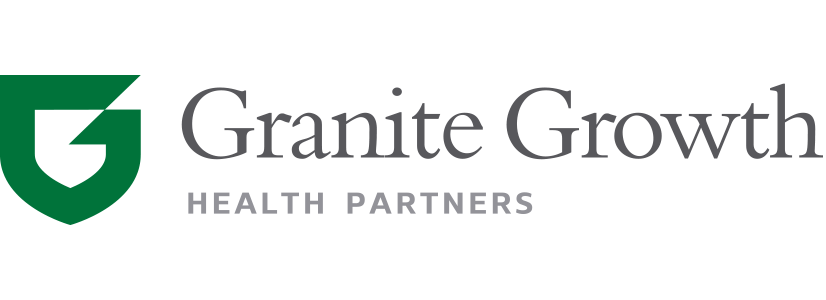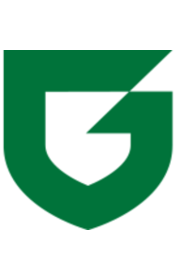In Fitchburg, MA, CleanSlate Opens a Medication Treatment Center Led by Compassion
May 23
Fitchburg, MA – CleanSlate, a national leader in outpatient addiction medicine, is now seeing patients by appointment or walk-in at its new Massachusetts center in Fitchburg. The center, located at 275 Nichols Road, was opened in response to a request by UMass Memorial HealthAlliance, which sought more resources for patients needing medication treatment. Fitchburg marks CleanSlate’s 15th center in Massachusetts and its 45th across eight states and Washington, D.C.
“CleanSlate operates like an extended family, and patients tell us how much they love coming to us,” says Dr. Flora Sadri, Center Medical Director for Fitchburg.
Sadri has also worked as a Medical Director at CleanSlate’s nearby centers in Athol and Worcester, and she thinks that strong local word of mouth is why the Fitchburg center is already treating more than 30 patients two weeks after opening. “People know that we have a very nurturing approach. We get to know our patients so well and help them in every way, with our Care Coordinators doing everything from helping patients set up bank accounts, getting them into shelters, and applying to colleges.”
“The compassion CleanSlate brings to the table is so dramatic,” says Shelley Modzeleski, Center Manager in Fitchburg. “It’s why the community is grateful that we’re here.”
Progress, with a catch
Riven by high unemployment, Fitchburg also suffers from high rates of opioid addiction and overdoses. Still, while the crisis is not receding and opioid addiction and overdoses remain high, the death rate from opioid overdoses is decreasing across Massachusetts for the first time in seven years. According to the Massachusetts Department of Public Health, in 2014 there was a 39% increase in overdoses from the prior year; in 2015, a 30% increase; in 2016, a 22% increase; and in 2017, an 8% decrease from 2016.
As reported last August by the Boston Globe, Massachusetts treatment professionals point to the widespread distribution of the overdose rescue drug Narcan (naloxone) as a big reason for the lower number of overdose deaths. But subsequent to this report, a study was shared that tracked Massachusetts residents who had received naloxone. The findings showed that one in 10 people who were administered naloxone went on to die within a year.
The conclusions make it clear that the opioid epidemic will not be solved simply by saving people from overdoses. Resuscitation is not the same as treatment.
A team of nurturers
Having treated nearly 30,000 patients over the past decade, CleanSlate’s program of care includes appropriate medication treatment prescribed by licensed medical providers, as well as clear accountability and supportive counseling. With close to 9,000 active patients across 45 centers nationwide, the medical group is aggressively growing its footprint to expand much-needed access to medical care for addiction.
The new team at CleanSlate’s Fitchburg center have worked on the frontlines of the opioid epidemic, and they understand the critical role that medication treatment plays in recovery. The Fitchburg team also knows that taking that first step towards treatment in the face of stigma isn’t easy.
When Sadri worked as the Chief Medical Officer of a Federally Qualified Health Center in Worcester, she saw the significant substance use disorder problem pervading the area and grew especially compassionate towards people suffering from addiction. “I realized that this was the most vulnerable population we have,” said Sadri. “The more I got to know this population, the more I recognized the effect that I could have in helping them achieve a normal life, which everyone deserves.”
Sadri’s empathy for and interest in helping people with addiction led her to CleanSlate, starting at the company’s centers in Athol and Worcester. “There was such a stigma that shouldn’t exist,” she said. “These people had nobody advocating for them. They get treated so badly – it’s not right. It’s not their fault. The trauma that so many of them have experienced makes me surprised that some are still alive. Until you have walked in their shoes, you can’t judge them.”
Prior to working with Sadri at the CleanSlate centers in Athol and Worcester, Modzeleski worked as an EMT, in private family practice and at a community health center. She saw the overdoses and struggle from the other end of addiction, and found it rewarding to come to a place where she could make a difference in patients’ lives through treatment.
“When I learned about CleanSlate,” Modzeleski says, “I was just amazed at what a good program it is. We put patients first, which is so important. I love how much the company wants to help and work with people. It’s wonderful to be a part of this systemic compassion for patients.”
Modzeleski finds that the CleanSlate program distinguishes itself through this compassion, as well as through a continuum of care. “This isn’t a program where it’s three strikes and you’re out,” she notes. “If patients are still struggling, we pivot to think about what else we can provide to give patients a more stable life; not just related to recovery, but for life overall. So many times I hear patients tell me, ‘Nobody gives me a chance. Nobody talks to me the way you are and tells me that I can succeed. Nobody listens.’ We really try to get to know our patients, and their appreciation is so rewarding.”
“The attitude and respect we bring, I think it’s why patients tell us how much they love coming here,” says Sadri. When patients come in, Sadri gives them a purple CleanSlate bracelet that reads, I am worth it; I choose me. Patients often disagree and say they’re not worth it. Sadri tells them, “I see someone who is worth a lot. You walked through the door. You reached out for help. That is amazing.”
Sadri and Modzeleski have been inspired to see patients in recovery who have moved on with their lives. “I have seen wedding pictures, graduation pictures, photos from vacations,” says Sadri. “I have held babies. I have read letters from patients telling me how we literally saved their lives.”
For more information or to schedule an appointment in Fitchburg, please call 978-516-9125 or visit http://www.cleanslatecenters.com. All CleanSlate centers accept walk-ins.
About CleanSlate
A pioneer and leader in office-based, outpatient addiction medicine, CleanSlate is a rapidly expanding national medical group that provides treatment for the chronic disease of addiction, primarily opioid and alcohol use disorders. Founded in 2009 in response to the country’s growing opioid epidemic, CleanSlate’s physician-led centers utilize medication treatment and related therapies to treat patients who suffer from addiction and associated disorders, adhering to the highest quality, evidence-based practices.
Learn more about CleanSlate at www.cleanslatecenters.com, and sign up for our newsletter to receive regular insights about addiction and the opioid epidemic. To schedule an appointment at any CleanSlate center, please call 833-505-HOPE or visit http://www.cleanslatecenters.com. All CleanSlate centers accept walk-ins.
Media Contact: Shanna Belott / 310-770-7857/ sbelott@cleanslatecenters.com



